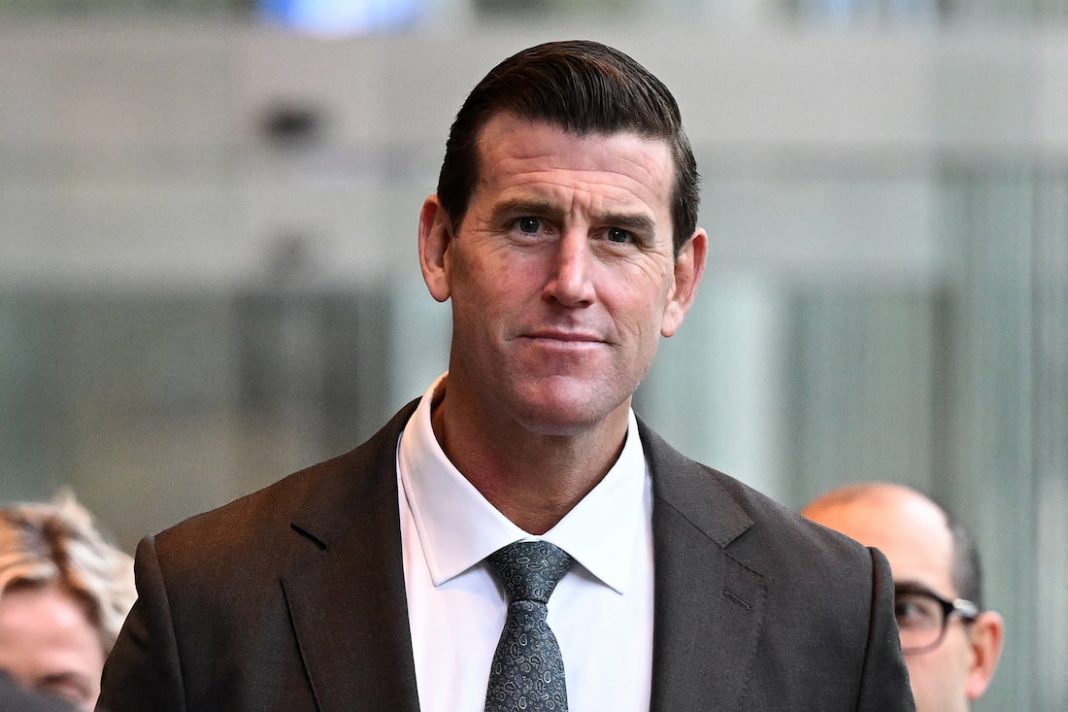Ben Roberts-Smith has quit as general manager of Seven Queensland amid the fallout of a defamation suit that found allegations of war crimes against him to be substantially true.
In an email sent to staff, Seven West Media CEO James Warburton thanked Mr Roberts-Smith for his work at the company.
“Ben has been on leave whilst the case was running and today has offered his resignation which we have accepted,” Mr Warburton said on Friday.
“We thank Ben for his commitment to Seven and wish him all the best.”
The 44-year-old’s claim of defamation was dismissed on Thursday after a Federal Court judge found a number of articles published in 2018 in The Sydney Morning Herald, The Age and Canberra Times implicating the retired SAS corporal in war crimes between 2009 and 2012 were substantially true.
Seven West executive chairman Kerry Stokes, who employed Mr Roberts-Smith in Queensland and backed his legal effort, said on Thursday he was disappointed with the judgment.
Prime Minister Anthony Albanese said on Friday he would not comment on the outcome of the defamation proceedings because the government may be involved in future legal action regarding war crimes.
“The determination that was made yesterday is a determination of a civil proceeding between two parties that didn’t involve the government,” Mr Albanese said during a political visit to Singapore.
“It would be inappropriate to comment on the detail of that, given the potential that is then there for future action that the government might be a party to.”
The Australian War Memorial Council is considering the future of public displays featuring Mr Roberts-Smith’s uniform, equipment, medals and associated art works.
“We are considering carefully the additional content and context to be included in these displays,” Memorial chairman Kim Beazley said on Friday.
“The memorial acknowledges the gravity of the decision in the Ben Roberts-Smith VC MG defamation case and its broader impact on all involved in the Australian community.
“This is the outcome of a civil legal case and one step in a longer process.”
Grounds could already exist for Mr Roberts-Smith’s Victoria Cross to be terminated, according to Australian National University academic Professor John Blaxland, who also served as an Australian Army officer during the Afghanistan War.
According to official guidelines, the governor-general can rescind an award if the recipient has behaved or acted in a manner that has brought disrepute on the order, he said.
“Some people think it’s just about the Order of Australia but it’s the only one I’ve seen that deals with Australian awards, plural,” Prof Blaxland said.
“There’s now a body of evidence that would suggest that while the acts of bravery for which (Mr Roberts-Smith) was awarded the Victoria Cross are not specifically addressed in the proceedings that have just transpired, the circumstances suggest that he’s bringing disrepute to the order.”
Mr Albanese said the government was committed to implementing recommendations by the Brereton inquiry, “to the extent possible”, including that potential war crimes be referred to the Australian Federal Police.
Major General Brereton’s inquiry found credible information of 23 incidents in which 39 individuals were unlawfully killed by Australian soldiers in Afghanistan.
“Australia’s international standing is extraordinarily strong, including the standing of our defence forces,” Mr Albanese said.



